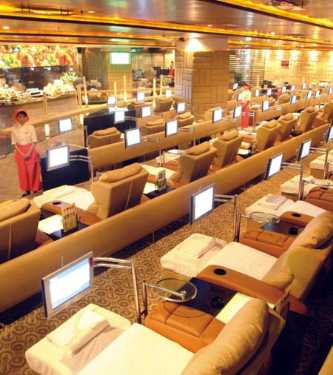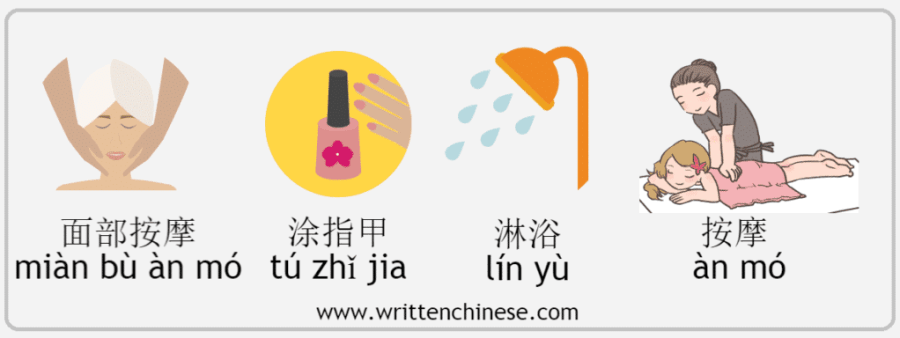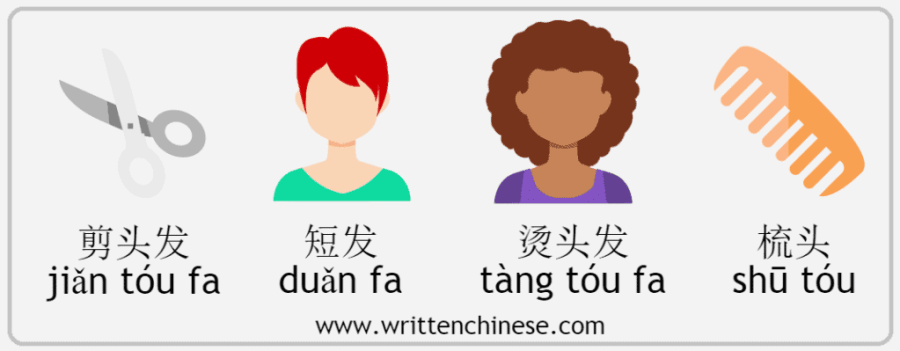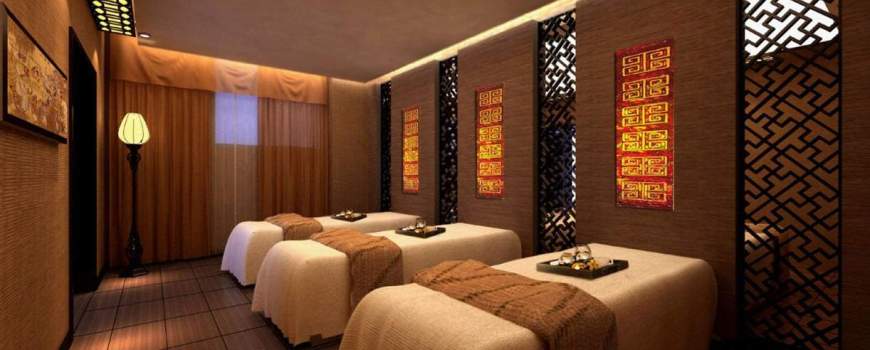Beauty and ‘self care’ has become a huge part of Chinese culture within the last few years. In an extreme version of the west, looking good, beautiful and cute in the million selfies you just took in your favourite coffee chain is pretty important. Many Chinese mobile phones have excellent quality cameras and include software to make your face slimmer, whiter and increase the size of your eyes so that you look like a Barbie doll. Additionally, since live streaming social media platforms are becoming more popular as a way to make money, many young Chinese people are beginning to spend cash on making themselves look good on camera.
Cosmetic Surgery
Cosmetic surgery has become a growing trend in China as well as and new types of treatments such as eyebrow tattooing and laser hair removal. In fact, it seems there’s just about any excuse for Chinese citizens to have cosmetic surgery. One of the most shocking articles I read recently, was that students are now getting cosmetic surgery in order to get jobs after graduation. Many go to Tianjin to have microsurgeries, such as botox and facelifts to improve their chances during interviews. With the rise of social media as a way to make money, particularly streaming sites, many women spend many times their monthly salaries in order to increase their chances of higher donations and gifts.
Although cosmetic surgeries can be incredibly cheap in China, many of the cheaper establishments may just be a beauty parlour with an unlicensed ‘doctor’ undertaking the procedure. Double eyelid surgery, for example, is one of the most common surgeries in China as it is seen as being more beautiful and surgery. In a licensed hospital, this surgery can cost over 2000RMB, but can be as cheap as 180RMB in lesser establishments, which is around $27!
Other popular procedures such as breast augmentation can be half the price of the USA, which averages at $3,719.
整形手术 (zhěng xíng shǒu shù) cosmetic surgery
双眼皮 (shuāng yǎn pí) double eyelid
丰胸 (fēng xiōng) breast implants
隆胸 (lōng xiōng) breast implants
美白 (měi bái) to whiten
拉皮 (lā pí) facelift
肉毒杆菌 (ròu dú gǎn jūn) botox
紧腹 (jǐn fù) tummy tuck
Spas and Massage Parlours
Of course, there are still those who like to stick with the more short-term treatments of massage, facials, and pedicures to get their kicks.
Although massage parlours may have gotten a reputation in China as being fronts for more sordid goings on,
There are many different options when it comes to massage and salons, from the local parlour where you can get a range of massages, to a spa with a pool, sauna and restaurant.
The service at a local massage parlour, can still be pretty good and even if you go for a mani-pedi you’ll also get a foot and maybe even a back massage. A pedicure also includes a ‘treatment’ I’ve only ever had in China, where they essential ‘shave’ the heels of your feet to get rid of dead skins etc. It’s gross, but worth a go.

Big spas are a little more expensive, but you can usually just pay for one full body massage to be entitled to use the sauna and then go and hang out on lounge chairs in pyjamas to watch your favourite movie, while you get a head massage.
This is a pretty big topic, so if you want to learn more, you can listen to our Two White Chicks in China podcast episode to learn more.

理容院 (lǐ róng yuàn) massage parlour
按摩 (àn mó) massage
女按摩师 (nǚ àn mó shī) masseuse
男按摩师 (nán àn mó shī) masseur
美容店 (měi róng diàn) beauty salon
全身 (quán shēn) whole body
酸 (suān) sore
痛 (tòng) hurt
轻 (qīng) gentle / light
重 (zhòng) hard / heavy
休息 (xiū xi) to rest
累 (lèi) tired
衣物柜 (yī wù guì) locker
更衣室 (gēng yī shì) changing room / locker room
桑拿 (sāng ná) sauna
淋浴 (lín yù) to shower
减压 (jiǎn yā) to reduce pressure
舒压 (shū yā) relieved / tensions relaxed
敲背 (qiāo bèi) back-knocking massage
泰式按摩 (tài shì àn mó) thai-style
足疗 (zú liáo) foot massage
捶背 (chuí bèi) back massage
推油 (tuī yóu) oil massage
美甲 (měi jiǎ) mani-pedi
修脚 (xiū jiǎo) pedicure
修手 (xiū shǒu) manicure
涂指甲 (tú zhǐ jia) to paint nails
面部按摩 (miàn bù àn mó) facial
Example Sentences
最近加班太多,在电脑前坐太长时间了,我全身酸痛。(zuì jìn jiā bān tài duō, zài diàn nǎo qián zuò tài cháng shí jiān le, wǒ quán shēn suān tòng)
I’ve done so much overtime recently, and my whole body aches from sitting in front of the computer.
下班之后,我们去做个泰式按摩吧。(xià bān zhī hòu, wǒ men qù zuò gè tài shì àn mó ba?) Why don’t we go and get a thai-style massage after work?
Hair Salons
Both men and women take great care of their hair in China, even if they don’t colour, curl or style it in a particular way. But those who do, spend a great amount of time visiting the hairdressers to get a new style or to lighten their hair. It’s quite common for people to go once a week to have their hair washed and styled, reminiscent of my grandma’s time when women would get their semi-permanents once a fortnight. Even if you go to the cheapest salon, you can still get the works, that often includes a massage. There tends to be different pay grades depending on the skill of your stylist, but a standard cut can be as cheap as 30RMB if you have a VIP card, another standard for chain salons.
Perming and dying is gaining popularity in China, although these processes can mean spending a full day in the salon according to a friend who once got a perm. People who dye their hair often go for oranges and red, although more recently I’ve spotted people with blue and purple highlights.

发廊 (fà láng) hair salon
发型师 (fà xíng shī) stylist
剪头发 (jiǎn tóu fa) to get a haircut
推头 (tuī tóu) to cut hair
烫头发 (tàng tóu fa) to perm hair
卷发 (juǎn fà) curl hair
卷发筒 (juǎn fà tǒng) hair roller
洗头 (xǐ tóu) wash hair
漂白头发 (piǎo bái tóu fa) bleach hair
染发 (rǎn fà) colour / dye hair
挑染 (tiāo rǎn) to highlight hair
干 (gān) dry
刘海 (liú hǎi) fringe or bangs
梳头 (shū tóu) comb hair
推子 (tuī zi) hair clippers
发型 (fà xíng) hair style
长 (cháng) long
短 (duǎn) short
Example sentences
我的头发太长了, 想剪一下。(wǒ de tóu fa tài cháng le, xiǎng jiǎn yī xià) My hair is too long, I want to cut it a bit.
你想怎么剪?(nǐ xiǎng zěn me jiǎn?) How do you want your hair cut?
我想剪这个发型。(wǒ xiǎng jiǎn zhè ge fà xíng) I want this kind of style.
我觉得挺适合你的。(wǒ jué de tǐng shì hé nǐ de) I think this will suit you.
